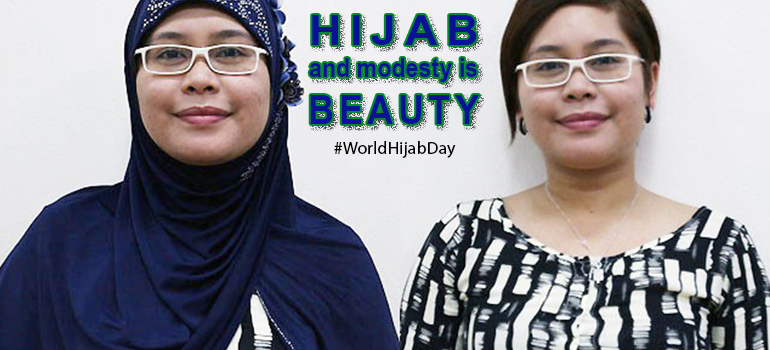It is obligatory to cover the body and it has nothing to with drawing attention or being solely a cultural background, especially a matter of choice.

Like the women who choose to wear the hijab, those who choose not to wear the hijab do so, for a variety of reasons. Some Muslim women believe that although the principles of modesty are clearly outlined in the Qu’ran. Some women believe that while the hijab allowed women in the past to engage in public society without garnering attention, the headscarf in contemporary Western society brings more attention to women and is thus contradictory to its original purpose. While some women might choose not to wear the hijab, Muslim women may believe that it is a woman’s choice whether or not she wears the hijab.
When we refer to the Quran we noticed that a great number of Islamic teachings and laws are not mentioned in details such as the quality of prayers and Salah, the number of Rak'a of prayers, and etc. regarding Hijab there we can find the verses 30-31 chapter al-Noor saying:
And tell the faithful women to cast down their looks and to guard their private parts, and not to display their charms, except for what is outward, and let them draw their scarfs over their bosoms, and not display their charms except to their husbands, or their fathers, or their husband's fathers, or...[1]
Allama Tabataba'I in his outspoken commentary asserts that "tell the believing women", considering the grammatical semantic points, means absolutely it is obligatory to do so, as it is regarding with their private parts.[2] Accordingly, it is obligatory to cover the body and it has nothing to do with drawing attention. Nevertheless, the limits and its boundaries of hijab are not mentioned explicitly. Although there are hadiths in this regard determining which places are excluded and exempt from veil and covering and from whom which parts of body must be covered. For instance, ibn Abbas excludes the hair and says it is allowed to uncover it for one's husband.[3]
Notes:
[1] وَ قُل لِّلْمُؤْمِنَاتِ يَغْضُضْنَ مِنْ أَبْصَارِهِنَّ وَ يحَفَظْنَ فُرُوجَهُنَّ وَ لَا يُبْدِينَ زِينَتَهُنَّ إِلَّا مَا ظَهَرَ مِنْهَا وَ لْيَضْرِبْنَ بخِمُرِهِنَّ عَلىَ جُيُوبهِنَّ وَ لَا يُبْدِينَ زِينَتَهُنَّ إِلَّا لِبُعُولَتِهِنَّ أَوْ ءَابَائهِنَّ أَوْ ءَابَاءِ بُعُولَتِهِنَّ أَوْ أَبْنَائهِنَّ أَوْ أَبْنَاءِ بُعُولَتِهِنَّ أَوْ إِخْوَانِهِنَّ أَوْ بَنىِ إِخْوَانِهِنَّ أَوْ بَنىِ أَخَوَاتِهِنَّ أَوْ نِسَائهِنَّ أَوْ مَا مَلَكَتْ أَيْمَانُهُنَّ أَوِ التَّابِعِينَ غَيرْ أُوْلىِ الْارْبَةِ مِنَ الرِّجَالِ أَوِ الطِّفْلِ الَّذِينَ لَمْ يَظْهَرُواْ عَلىَ عَوْرَاتِ النِّسَاءِ وَ لَا يَضْرِبْنَ بِأَرْجُلِهِنَّ لِيُعْلَمَ مَا يخُفِينَ مِن زِينَتِهِنَّ وَ تُوبُواْ إِلىَ اللَّهِ جَمِيعًا أَيُّهَ الْمُؤْمِنُونَ لَعَلَّكمُْ تُفْلِحُون
[2] Allama Tabataba'i. al-Mizan, V 15. P 155
[3] Fiqh al-Quran fi Sharh Ayat al-Ahkam. V 2. P 128
قال ابن عباس يعني القرطين و القلادة و السوار و الخلخال و المعضد و النحر فإنه يجوز إظهار ذلك فأما الشعر فلا يجوز أن تبديه إلا لزوجها



